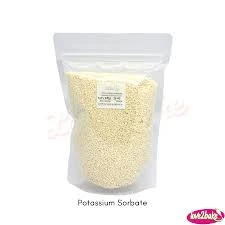
e621 food additive
Understanding E621 The Science Behind Monosodium Glutamate
In the realm of food additives, few have stirred as much debate as monosodium glutamate (MSG), commonly referred to as E621. Used extensively in the food industry to enhance flavor, MSG is a sodium salt of glutamic acid, an amino acid that naturally occurs in many foods, including tomatoes and cheese. Despite being a staple in various cuisines, particularly in Asian cooking, MSG has faced scrutiny and criticism over the years. This article aims to explore the science behind E621, its safety, effects, and usage in modern food production.
What is E621?
E621 is the E-number designation for monosodium glutamate, which is a flavor enhancer known for its umami taste. Umami, often recognized as the fifth taste alongside sweet, sour, bitter, and salty, imparts a savory depth to dishes. MSG is synthesized through the fermentation of starches and sugars and is commonly added to processed foods, snacks, soups, and sauces, among others.
How Does it Work?
The primary function of E621 is to amplify the flavors in food. When consumed, MSG binds to specific receptors on the tongue that are sensitive to umami. This interaction enhances the overall flavor profile of a dish, making it more appealing to our palates. This property is particularly valuable in the food industry, where the goal is to produce flavorful products that appeal to a wide range of consumers.
Controversy and Safety Concerns
Despite its widespread use, MSG has been at the center of controversy, primarily due to anecdotal reports linking it to various health issues, such as headaches, flushing, and muscle tightness—collectively known as the Chinese Restaurant Syndrome. However, scientific research has largely debunked these claims. Comprehensive studies conducted by regulatory agencies, including the U.S. Food and Drug Administration (FDA) and the European Food Safety Authority (EFSA), have concluded that MSG is generally recognized as safe when consumed in moderation.
e621 food additive

While some individuals may experience mild, short-lived symptoms after consuming large amounts of E621, such reactions are considered rare. For the majority of the population, MSG does not pose any significant health risks. Nevertheless, the labeling of MSG in food products allows consumers to make informed choices about their diet.
Nutritional Value
From a nutritional standpoint, MSG is composed of sodium and glutamate. While it does contain sodium, the levels in which it is typically used in food products can be lower than the natural sodium content found in other common flavor enhancers, such as table salt. Additionally, glutamate is an important neurotransmitter in the body, playing a crucial role in various metabolic processes.
Culinary Applications
The culinary applications of E621 are vast. Chefs and home cooks alike appreciate MSG for its ability to enhance and round out flavors. It can be found in a variety of products, from instant noodles and seasoning blends to packaged snacks and frozen meals. For those looking to reduce sodium intake, MSG can serve as an effective alternative to traditional salt, allowing for flavorful dishes with lower sodium levels.
Conclusion
Monosodium glutamate (E621) is a powerful condiment that has garnered both praise and criticism over the years. While its ability to enhance umami flavor in food is widely acknowledged, it is crucial to base opinions on scientific evidence rather than anecdotal reports. Regulatory bodies have established that MSG is safe for the general population, and its responsible use can contribute to more flavorful and satisfying meals.
As consumers become more health-conscious, understanding food additives like E621 is essential. Through education and informed choices, individuals can enjoy the benefits of flavor enhancers while maintaining a balanced diet. Ultimately, moderation is key, and MSG, when used appropriately, can be one of many tools in the culinary arsenal that brings joy to our dining experiences.
-
Pure Sodium Dichloroisocyanurate Dihydrate | Powerful DisinfectantNewsAug.29,2025
-
Industrial Chemicals: Quality & Purity for Every IndustryNewsAug.28,2025
-
Nitrile Rubber Honoring Strict Production StandardsNewsAug.22,2025
-
Aspartame Ingredients Honoring Food Safety ValuesNewsAug.22,2025
-
Fertilizer for Balanced Plant NutritionNewsAug.22,2025
-
Cyanide Gold Processing with High Purity AdditivesNewsAug.22,2025
-
Formic Acid in Textile Dyeing ApplicationsNewsAug.22,2025
Hebei Tenger Chemical Technology Co., Ltd. focuses on the chemical industry and is committed to the export service of chemical raw materials.
-

view more DiethanolisopropanolamineIn the ever-growing field of chemical solutions, diethanolisopropanolamine (DEIPA) stands out as a versatile and important compound. Due to its unique chemical structure and properties, DEIPA is of interest to various industries including construction, personal care, and agriculture. -

view more TriisopropanolamineTriisopropanolamine (TIPA) alkanol amine substance, is a kind of alcohol amine compound with amino and alcohol hydroxyl, and because of its molecules contains both amino and hydroxyl. -

view more Tetramethyl Thiuram DisulfideTetramethyl thiuram disulfide, also known as TMTD, is a white to light-yellow powder with a distinct sulfur-like odor. It is soluble in organic solvents such as benzene, acetone, and ethyl acetate, making it highly versatile for use in different formulations. TMTD is known for its excellent vulcanization acceleration properties, which makes it a key ingredient in the production of rubber products. Additionally, it acts as an effective fungicide and bactericide, making it valuable in agricultural applications. Its high purity and stability ensure consistent performance, making it a preferred choice for manufacturers across various industries.





